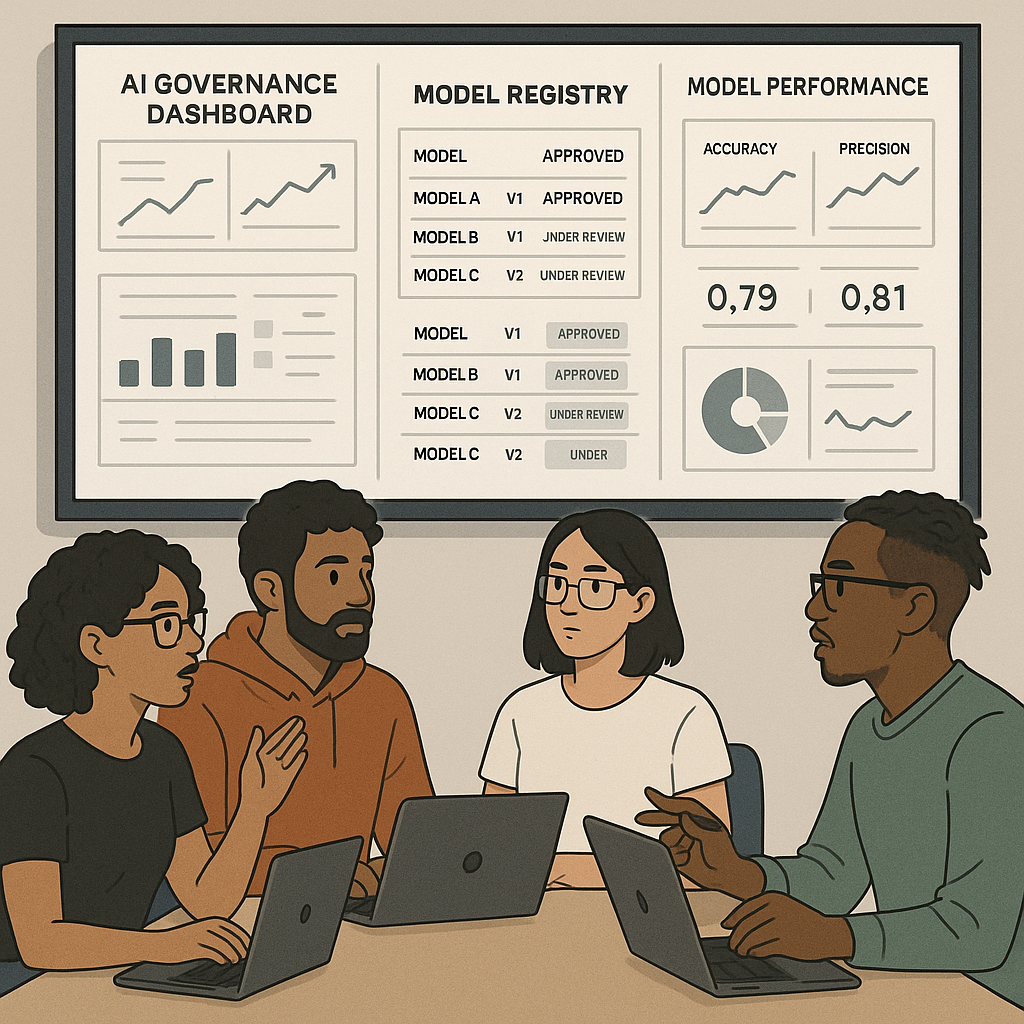With the meteoric rise of AI, every ambitious business faces a pivotal question: how to ensure AI is safe, lawful, and trustworthy at scale? While technology promises acceleration, the path to competitive advantage is littered with strategic missteps and regulatory surprises. Two scenarios dominate: the traditional mid-market firm confronting a first true step into AI governance, and the digital-native scale-up poised to move from cutting-edge experimentation to disciplined, enterprise-wide standards. Both require an AI Ethics Center of Excellence (CoE), but the blueprint — and the challenges — are distinctly different.
Mid-Market CEOs: Standing Up Your First AI Ethics CoE on a Budget
For mid-market organizations, launching an AI Center of Excellence shouldn’t be a Fortune 500-only endeavor. In fact, establishing an AI ethics CoE early can become an agile, scalable engine for innovation while reducing risk, especially as AI scales across departments. Think of it as both an insurance policy and a value accelerator for your company’s digital journey.

Framing the Business Case
Mid-market companies, often leaner and more frugal than enterprise giants, benefit exponentially from centralized AI expertise. An AI ethics CoE minimizes the fallout from model drift, algorithmic bias, or compliance failures—which can otherwise erode hard-won trust and expose you to penalties. But just as importantly, centralizing AI knowledge allows faster prototyping, more consistent best practices, and removes friction from the exploration of AI-powered automations and analytics. The CoE structure decreases duplicated effort, shortens time to value for AI projects, and future-proofs your data strategy for regulatory change.
Establishing Lightweight Governance
Launching your first CoE does not mean constructing a bureaucracy. The essential move is a crisp governance charter: one that clarifies what the CoE will (and won’t) control, and which KPIs matter most. For most mid-market leaders, early KPIs should focus on how many teams are consuming AI services, reduction in model errors, and initial cycles of ethical review. You want a structure that fosters trust and discipline, not red tape.

Shared Services: Internal Consulting
With budgets tight, a central AI team doesn’t have to be a full-time staff of ten. Instead, structure the CoE as a shared-service model. Data scientists and ML-savvy engineers act as internal consultants, helping business units scope use cases, set up transparent decision-making, and review outcomes. The CoE operates as an on-demand pool of expertise, promoting the reuse of code, tooling, and ethical review patterns without overwhelming operational overhead.
Engaging External Partners for Strategic Leverage
No mid-market firm must go it alone, especially with compliance and technical fast-moving in AI. Partnering with a specialist AI consulting and development firm brings several advantages: from tailored training sessions that upskill your staff, to rapid provisioning of audit tooling and best-practice templates. The right partner can guide you through sensitive issues—such as choosing ethical frameworks or automating internal audits—without the cost or risk of full-time hires. They become the guardrails for both innovation and compliance as you scale.
The 90-Day Launch Roadmap: Fast and Lean

Your AI ethics CoE should demonstrate relevance and value from day one. Our recommended approach is a 90-day sprint:
- Weeks 1-2: Define charter, KPIs, and CoE team roles.
- Weeks 3-4: Deploy lightweight governance tools (model documentation, ethics checklists).
- Weeks 5-8: Deliver quick-win automations with embedded ethical review (e.g., bias detection on recruitment AI, explainability on customer support models).
- Weeks 9-12: Schedule cross-department training, formalize knowledge sharing libraries, and produce a showcase on early results.
This approach keeps initial costs modest but lays the foundation for robust, compliant, and innovative AI usage. A well-executed AI Center of Excellence is the single most important step you can take this year to future-proof your AI projects and prevent costly missteps.
Digital-Native CTOs: Level-Up Your Existing AI Guild to a Formal Ethics CoE
For digital-native businesses, the journey is radically different. You already have AI expertise — likely in pockets, perhaps in the form of internal guilds or tiger teams that champion best practices in machine learning. But as the company grows, scale exposes gaps in process, risk in policy, and demands external auditability. Here, evolving into an AI ethics CoE isn’t just a nod to compliance: it becomes essential for sustainable scaling and ongoing market trust.
Mapping the Maturity Gap
Using established AI maturity models, the first order of business is a thorough gap analysis. How consistently are you tracking data provenance? When was your last end-to-end ethical review of deployed models? Is model documentation standardized? This audit surfaces not only technical but also organizational weaknesses that could slow future product launches or court reputational risk.
Automating Governance at the Speed of CI/CD
To scale efficiently, digital-natives must bake policy enforcement directly into engineering workflows. This means CI/CD gates that halt promotion of AI models unless they pass privacy, bias, or explainability tests. Integrating model registries ensures robust versioning, traceability, and audit trails without manual effort. Such automation transforms ethical AI from an afterthought to an embedded feature of your innovation cycle.
Advanced Metrics: From Ethical Debt to Model Carbon Footprint
Modern CoEs move beyond tracking basic incidents. Today’s leading digital-natives monitor metrics like “ethical debt”—the gap between current practices and industry standards—and quantify the carbon footprint of model training and inference. These advanced KPIs signal to both internal leaders and external partners that governance isn’t just box-ticking; it’s a strategic advantage for responsible AI development.
Scaling Knowledge: Prompt Libraries and Living Documentation
One frequent stumbling block for scaling is tribal knowledge: practices living in Slack threads or personal docs. Formal AI ethics CoEs develop shared prompt libraries, code templates, and dynamic documentation spaces. These enable rapid knowledge transfer, speed up onboarding, and ensure that every new AI initiative starts with best practices, not from scratch.
Accelerating with External Support
Our CoE Accelerator Package is designed to meet digital-natives at their point of need. We provide governance templates, targeted hiring and talent support, and automated tooling — all tailored to your maturity level. Whether tackling regulatory requirements, or simply scaling robust internal practices, our partnership removes friction from your journey to an enterprise-grade AI Center of Excellence.
The common thread: wherever your firm is on the digital journey, investing in a right-fit AI ethics CoE isn’t just about compliance. It’s about accelerating value, scaling trust, and building a durable competitive edge in the age of autonomous algorithms. Our strategic consulting and development services are your allies–whether you’re designing your first CoE playbook or leveling up to leading-edge AI governance. The path forward is clear, and now is the time to take it.
Contact us to start your journey with an expert AI Ethics Center of Excellence partner.
Sign Up For Updates.


